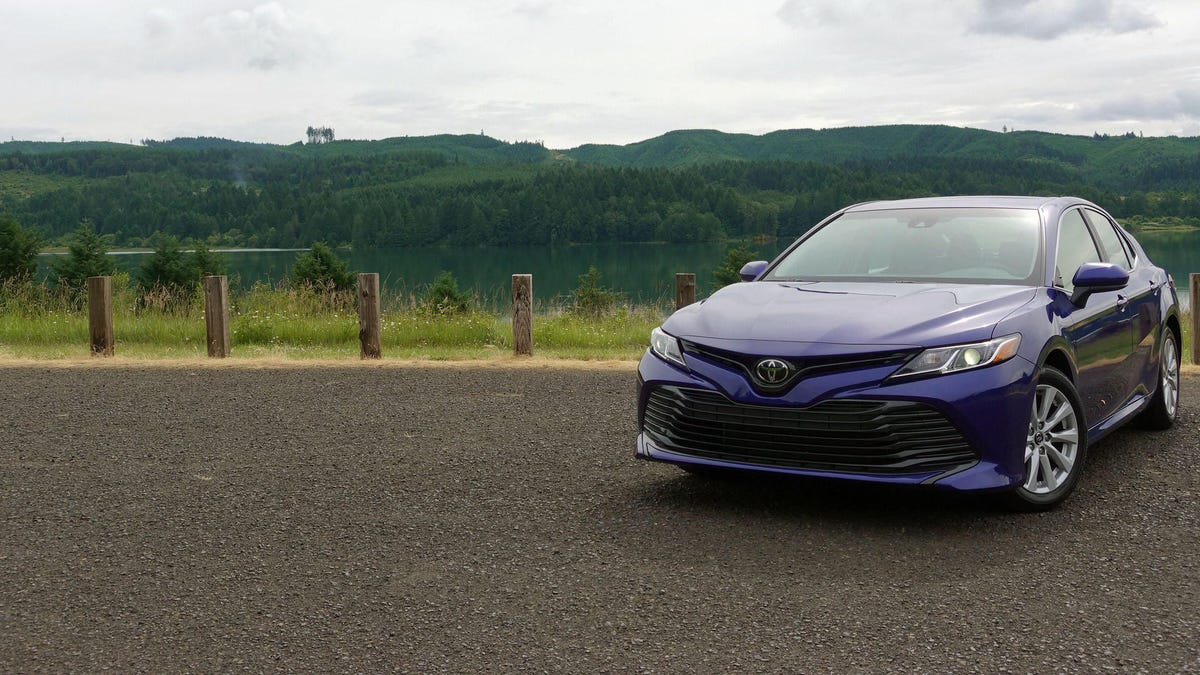How to afford a car, not just buy one
Laser focus on a car's price is a mistake.

Obsessing on just the price of a new car is a noob's error. Why do you think car commercials draw your attention to it? Instead, decide based on total cost of ownership or TCO, of which price is just one component. Here's a short checklist
Read: How to buy your first car
Price
Of course you want to negotiate the lowest price, but after that hard won progress with the salesperson, don't give it all back in the finance office. Use online tools to get a good idea of what people are actually paying for that car in your zip code. Then, decide to buy or lease...
Buy
Because 90% of us finance a new car in some way, shop interest rates everywhere, not just what the dealer offers. So-called "captive" financing may offer terms no bank can match because the carmaker just needs to move units, but you must check your bank, online loan quotes and any deals your employer may have arranged. Do the biggest down payment and the smallest loan term you can comfortably swing. And consider selling your old car, not trading it in: You should get more for it that way.
Lease
Leasing has grown nearly a third of new car transactions, and more than that in luxury cars. A lease should mean less money up front and each monthly, but you won't own a thing at the end of it. But many folks like the idea of never owning an aging machine. Leases have three cost levers you should read before signing:
- Capitalized cost or cap reduction is like a down payment. Some factory leases forego this to move slow selling cars.
- Money factor is like an interest rate. Banks aren't in the leasing business as a charity.
- Residual value is an estimate of what the car will be worth when it comes back into the dealer's inventory. Higher residual at the end means less out of your pocket along the way.
Incentives
These come in two types: Yours and theirs. "Yours" include special low factory finance & lease rates, rebates, loyalty discounts for buying the same brand again, etc. They must be disclosed to you by the dealer. "Theirs" include factory incentives for hitting certain sales volume tiers each month. These so-called "stair step" incentives are one reason you might see a car advertised for a lot less at a given dealer than at others: They may be gambling that they'll get a big factory bonus that month and are backing some of it out of car prices now to make sure they do.
Reliability
This only really matters if you own a car beyond warranty and beyond any included new car service plan. Estimating it is a bit of a black art, but some consumer reviews can give you an idea of which cars have lots of problems and which don't. Google specific owner forums to get an idea of average brake and tire wear.
Insurance
Call your agent (or a new one) before you sign on the dotted line. There is often no visible rhyme or reason to why some cars cost a lot to insure. It can be a rude awakening when you call your agent the morning after bringing home your new car.
Fuel economy
Fuel matters in two ways. What is the car's average MPG compared to others you are considering, and does it take Premium fuel. Premium is becoming more common due to smaller engines that use higher compression to compensate for their size. It can add $300-$500 a year to your TCO.
Extended warranties and service plans
To make it simple, I say don't do it. But if you have bad car karma, it may work out for you. Make sure the plan you buy isn't too much of a duplicate of factory coverage, know where it requires you get work done, who gets paid and how much, how much and how often you can use it, and if it's transferable if you sell the car while the plan is in effect (which doesn't apply in a lease.)
Resale value
Like residual value in a lease, resale value in a sale is what your purchased car will be worth when you finally own it clear. There are guides online to estimate this, but most people never bother with them. Big mistake. If I told you I either will or won't give you $4,000 in five years, I'd have your attention, right? Well, that is exactly the difference resale value can make between cars you may be considering -- and far more if you're buying a luxury car.
Finally, know that walking into a showroom with for a quick, all-cash sale does not make you a dream customer, especially if you drove quite a way for the best price. Dealers make little if any money on the actual sale of a new car, after costs. The money for them is in financing or leasing, extended warranties, dealer installed options, used car sales, trade-ins, incentive payments from the factory, and getting you back for service and repair.

